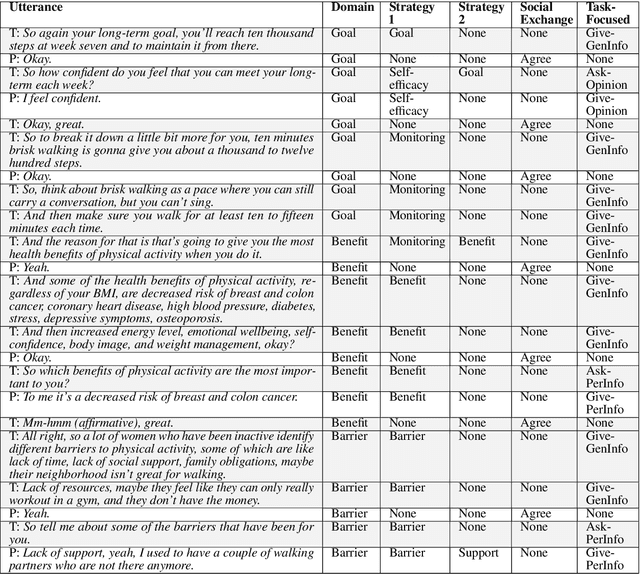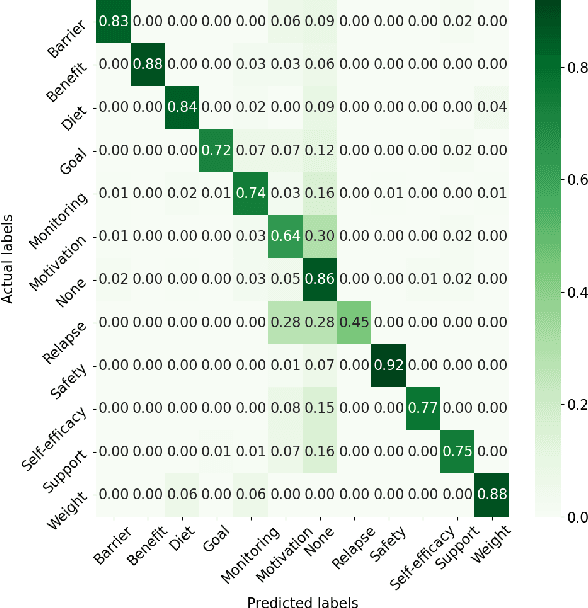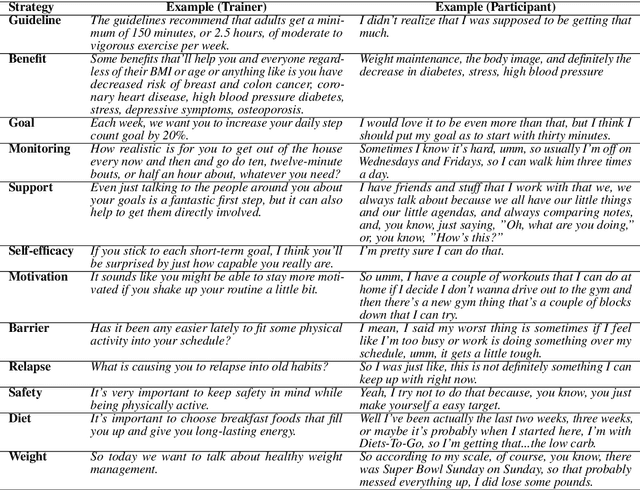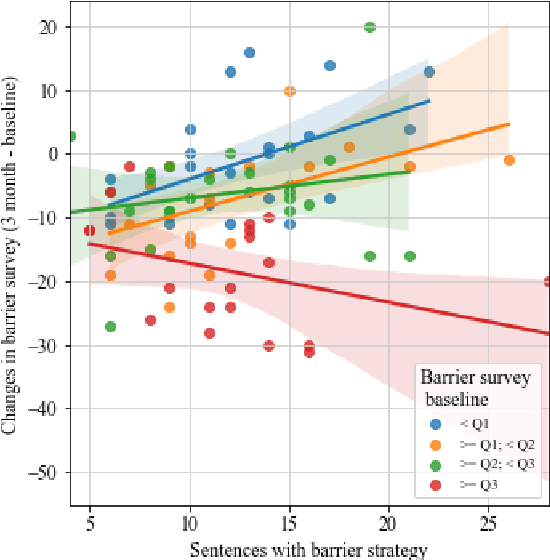Yoshimi Fukuoka
Evaluation of In-Person Counseling Strategies To Develop Physical Activity Chatbot for Women
Jul 22, 2021



Abstract:Artificial intelligence chatbots are the vanguard in technology-based intervention to change people's behavior. To develop intervention chatbots, the first step is to understand natural language conversation strategies in human conversation. This work introduces an intervention conversation dataset collected from a real-world physical activity intervention program for women. We designed comprehensive annotation schemes in four dimensions (domain, strategy, social exchange, and task-focused exchange) and annotated a subset of dialogs. We built a strategy classifier with context information to detect strategies from both trainers and participants based on the annotation. To understand how human intervention induces effective behavior changes, we analyzed the relationships between the intervention strategies and the participants' changes in the barrier and social support for physical activity. We also analyzed how participant's baseline weight correlates to the amount of occurrence of the corresponding strategy. This work lays the foundation for developing a personalized physical activity intervention bot. The dataset and code are available at https://github.com/KaihuiLiang/physical-activity-counseling
Non-Stationary Bandits with Habituation and Recovery Dynamics
Dec 21, 2017



Abstract:Many settings involve sequential decision-making where a set of actions can be chosen at each time step, each action provides a stochastic reward, and the distribution for the reward of each action is initially unknown. However, frequent selection of a specific action may reduce its expected reward, while abstaining from choosing an action may cause its expected reward to increase. Such non-stationary phenomena are observed in many real world settings such as personalized healthcare-adherence improving interventions and targeted online advertising. Though finding an optimal policy for general models with non-stationarity is PSPACE-complete, we propose and analyze a new class of models called ROGUE (Reducing or Gaining Unknown Efficacy) bandits, which we show in this paper can capture these phenomena and are amenable to the design of effective policies. We first present a consistent maximum likelihood estimator for the parameters of these models. Next, we construct finite sample concentration bounds that lead to an upper confidence bound policy called the ROGUE Upper Confidence Bound (ROGUE-UCB) algorithm. We prove that under proper conditions the ROGUE-UCB algorithm achieves logarithmic in time regret, unlike existing algorithms which result in linear regret. We conclude with a numerical experiment using real data from a personalized healthcare-adherence improving intervention to increase physical activity. In this intervention, the goal is to optimize the selection of messages (e.g., confidence increasing vs. knowledge increasing) to send to each individual each day to increase adherence and physical activity. Our results show that ROGUE-UCB performs better in terms of regret and average reward as compared to state of the art algorithms, and the use of ROGUE-UCB increases daily step counts by roughly 1,000 steps a day (about a half-mile more of walking) as compared to other algorithms.
 Add to Chrome
Add to Chrome Add to Firefox
Add to Firefox Add to Edge
Add to Edge